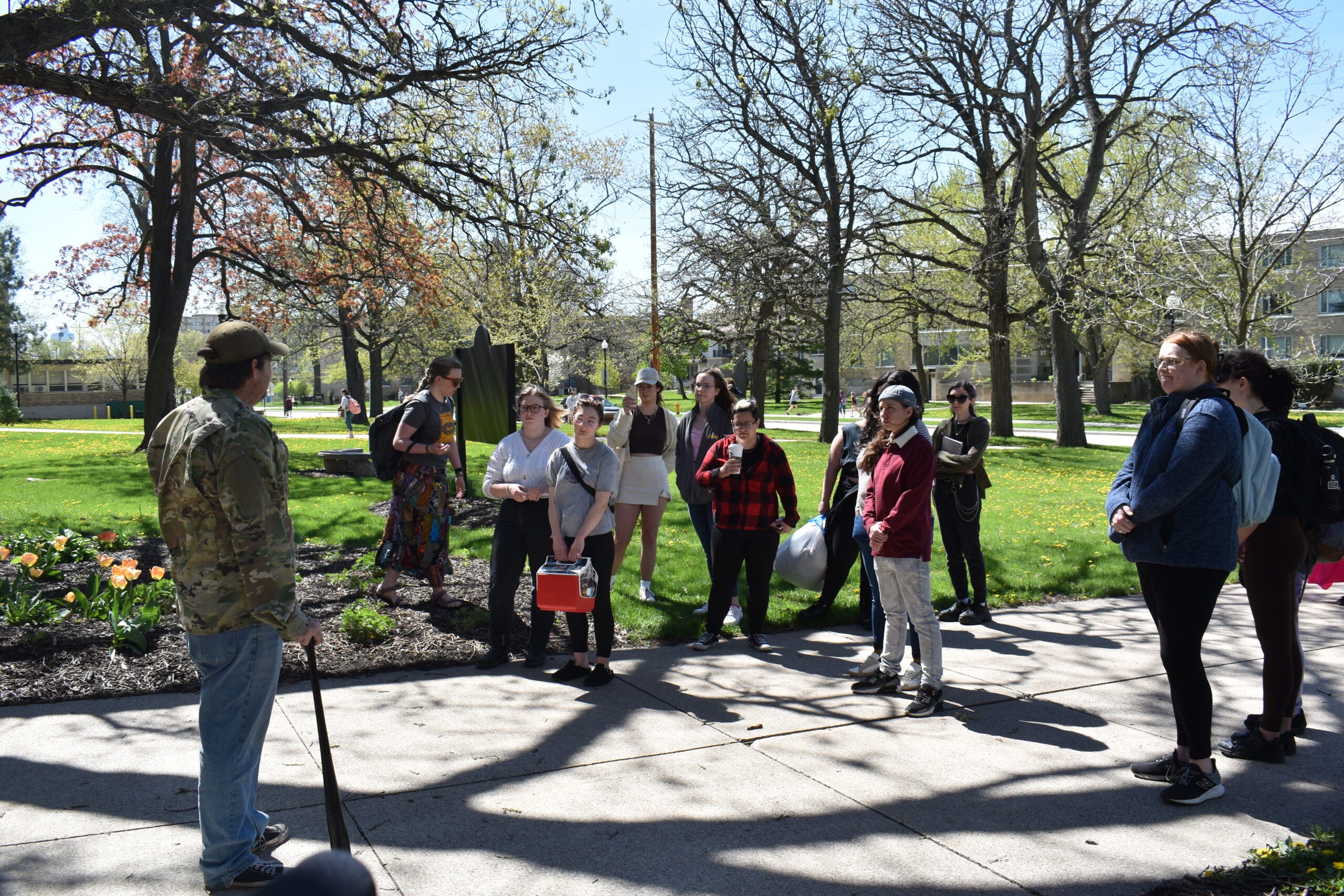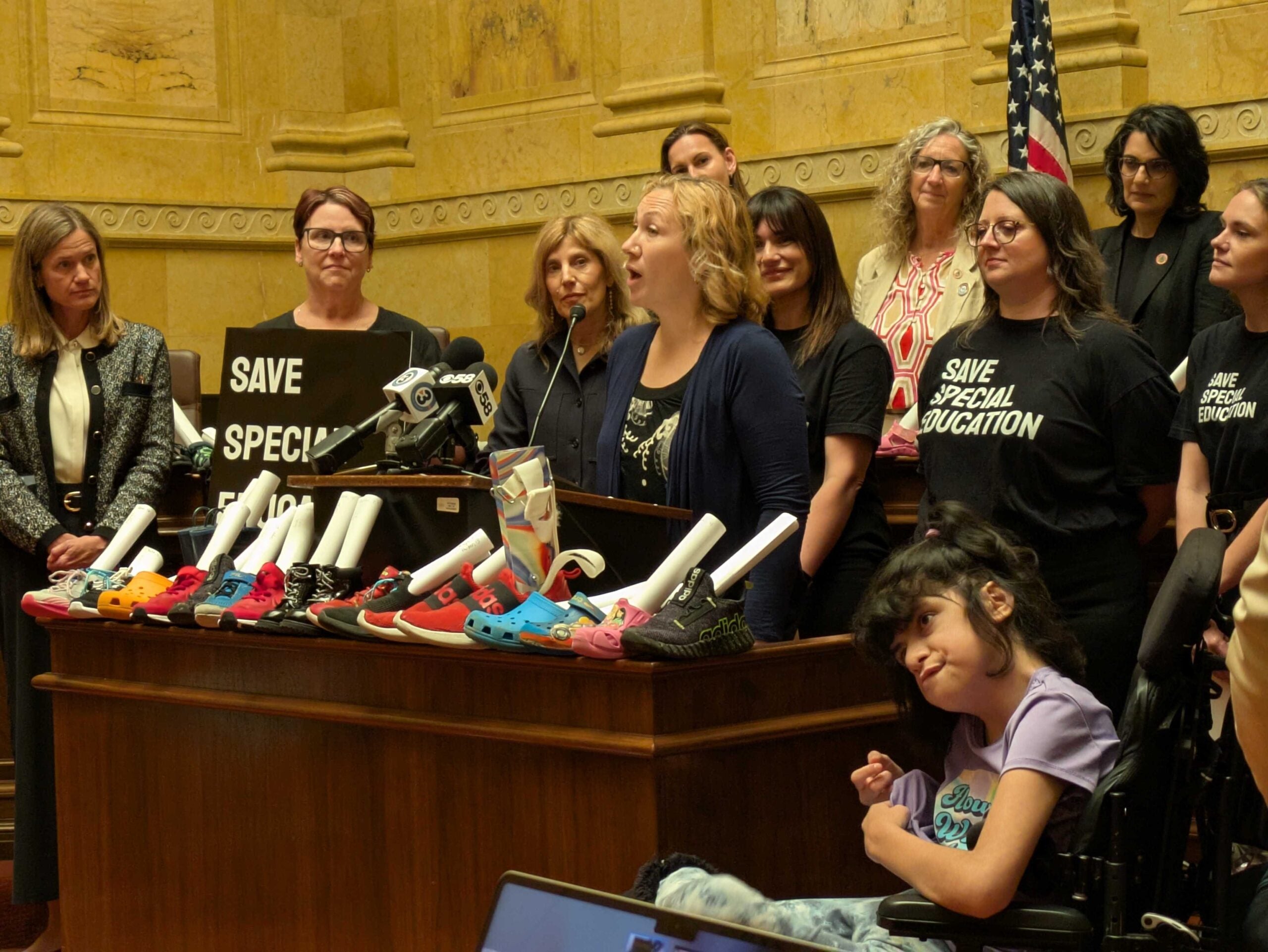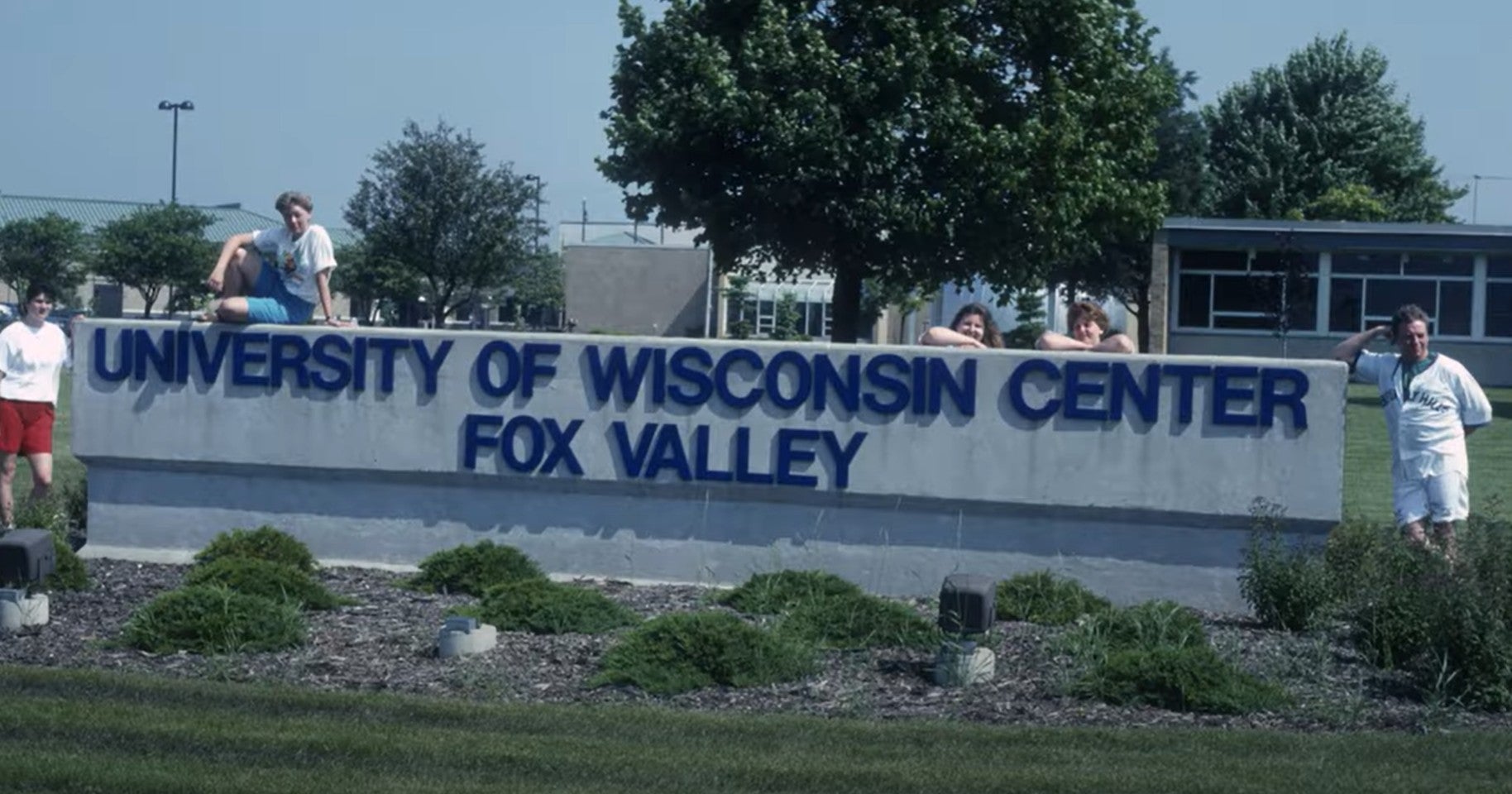A small group of students staged a walkout at the University of Wisconsin-Oshkosh this week, accusing the university of discriminating against people with disabilities.
Students said the university is violating the Americans with Disabilities Act and Section 504 of the Rehabilitation Act of 1973. They argue the violations “undermine the rights and dignity of disabled students,” and present barriers to their access to education.
Melissa Mitchler, who has been a part-time student for nine years, has multiple sclerosis. She is set to graduate this spring. In an interview with WPR, she said when she started at Oshkosh, professors were understanding of accommodations she needed.
News with a little more humanity
WPR’s “Wisconsin Today” newsletter keeps you connected to the state you love without feeling overwhelmed. No paywall. No agenda. No corporate filter.
When she returned to in-person class after the pandemic, she said things were different. She felt like she had to prove she had extenuating circumstances, whereas before it was a given.
“It’s honestly one of the most soul crushing feelings in the world because you almost feel blindsided,” she said. “Like I was this dumb kid with rose-colored glasses on.”
She said now professors are asking for doctors’ notes, dismissing her requests and singling her out in class. It has soured her relationship with the school.
“How do you watch a school take the greatest things, throw them away and still have respect for it?” she said.
Mitchler is a part of the group UW-Oshkosh Disability Advocates which staged the walkout on May 1. Group members called on the school to improve academic support and infrastructure for students with disabilities.
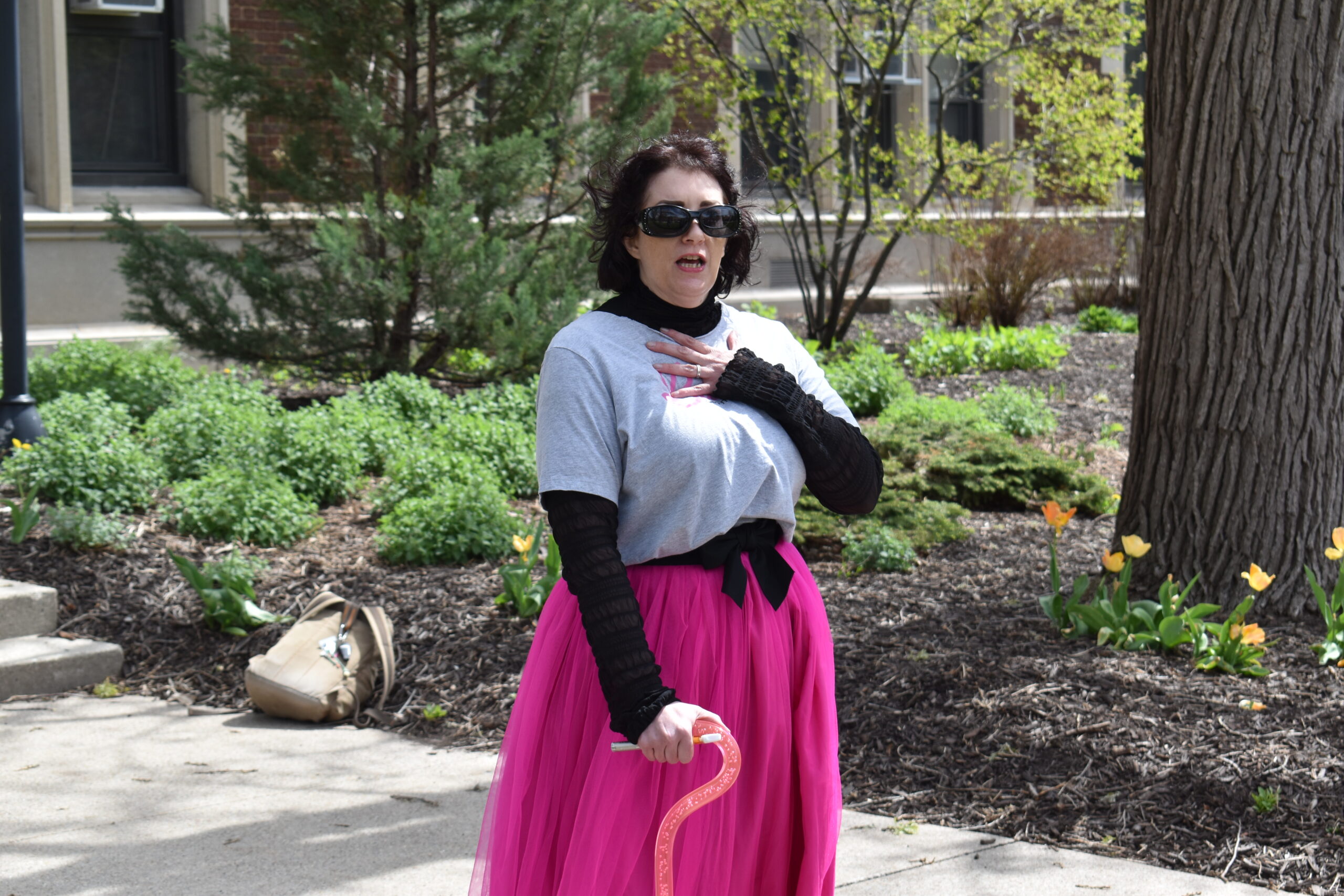
Last year, the university announced it had an $18 million budget deficit. To address it, the university created an Institutional Realignment Plan, which included reducing its workforce by 250 positions through layoffs, voluntary retirements and not filling vacant positions.
According to the university, the number of staff serving students with disabilities was cut by half, from eight people to four. Students said requests for accommodations are now being delayed or denied, resulting in poorer academic performance because they can’t get the help they need.
“Disabled students are falling through the cracks,” said sophomore Sophia Schneider during the walkout.
Students said budget cuts are disproportionately affecting students with disabilities. Alex Hummel, university chief of staff, disputes that.
“We’re working hard to make sure that we’re able to provide services at a solid and good level,” Hummel said. “Every student has felt something, I think, from workforce reductions, so we’ve been very careful as best as we can to shield the student experience from any negative effect.”
Students also said campus facilities are not accessible to students with disabilities. They said issues include above-ground piping blocking walkways, broken elevators and an inadequate number of handicapped parking spaces.
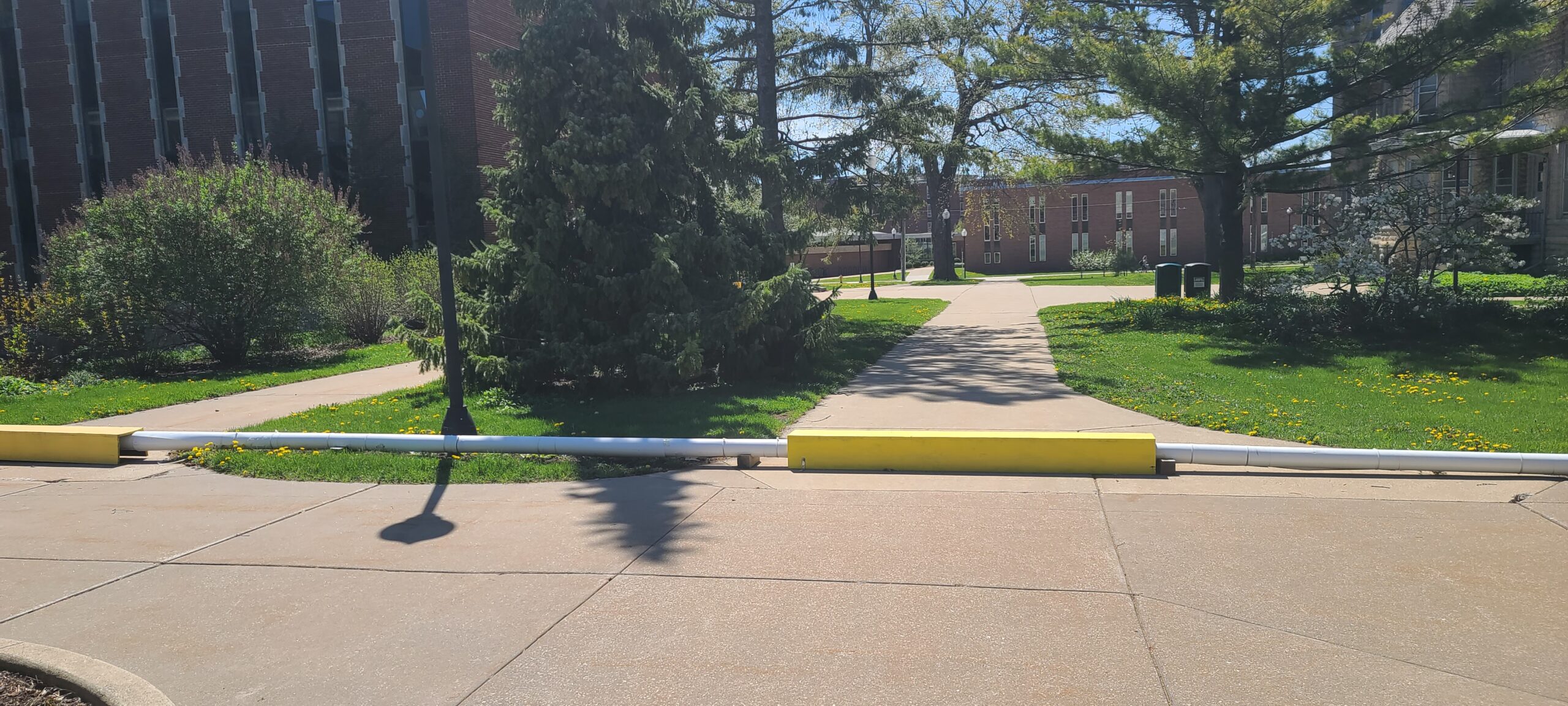
“We have asked numerous, numerous times for administration and staff on campus to relook at these issues and to find ways that we can allocate funding to disabled services,” said first-year student Allie Borland.
Hummel said the university is doing its best to listen to concerns and make changes when they can. He said lights have been dimmed in the testing center and white noise machines have been added. Over the summer, the university will be working on disability trainings and seminars for faculty.
“I think we’re doing our best. Since we’ve dealt with workforce reductions, I know people are working really hard to respond to students,” Hummel said.
Campus administrators organized a meeting in February to discuss disability services on campus and the consequences of the budget cuts. Holly Ludwig Callaghan, the accessibility coordinator with the dean of students, told students she is generating a list of “problematic” professors, according to a transcript of the meeting provided by the student group.
“We should be fighting for you. That’s our responsibility. But then you also have to try not to be tired of fighting for yourself,” Ludwig Callaghan said, according to the transcript.
The group is asking the U.S. Department of Education Office of Civil Rights and the Wisconsin Department of Justice to investigate UW-Oshkosh for disability discrimination, according to one of the group’s leaders, retired disabled military veteran Chris Walker.
At least one student filed complaints with the U.S. Department of Education Office of Civil Rights and the U.S. Department of Justice Civil Rights Division which were both denied.
“You did not provide specific examples of students who have not received accommodations in violation of federal law,” the U.S. Department of Education said in response to the complaint.
“No one is listening to us,” Mitchler said. “I’m constantly having to battle for the basics of human rights.”
Wisconsin Public Radio, © Copyright 2025, Board of Regents of the University of Wisconsin System and Wisconsin Educational Communications Board.

